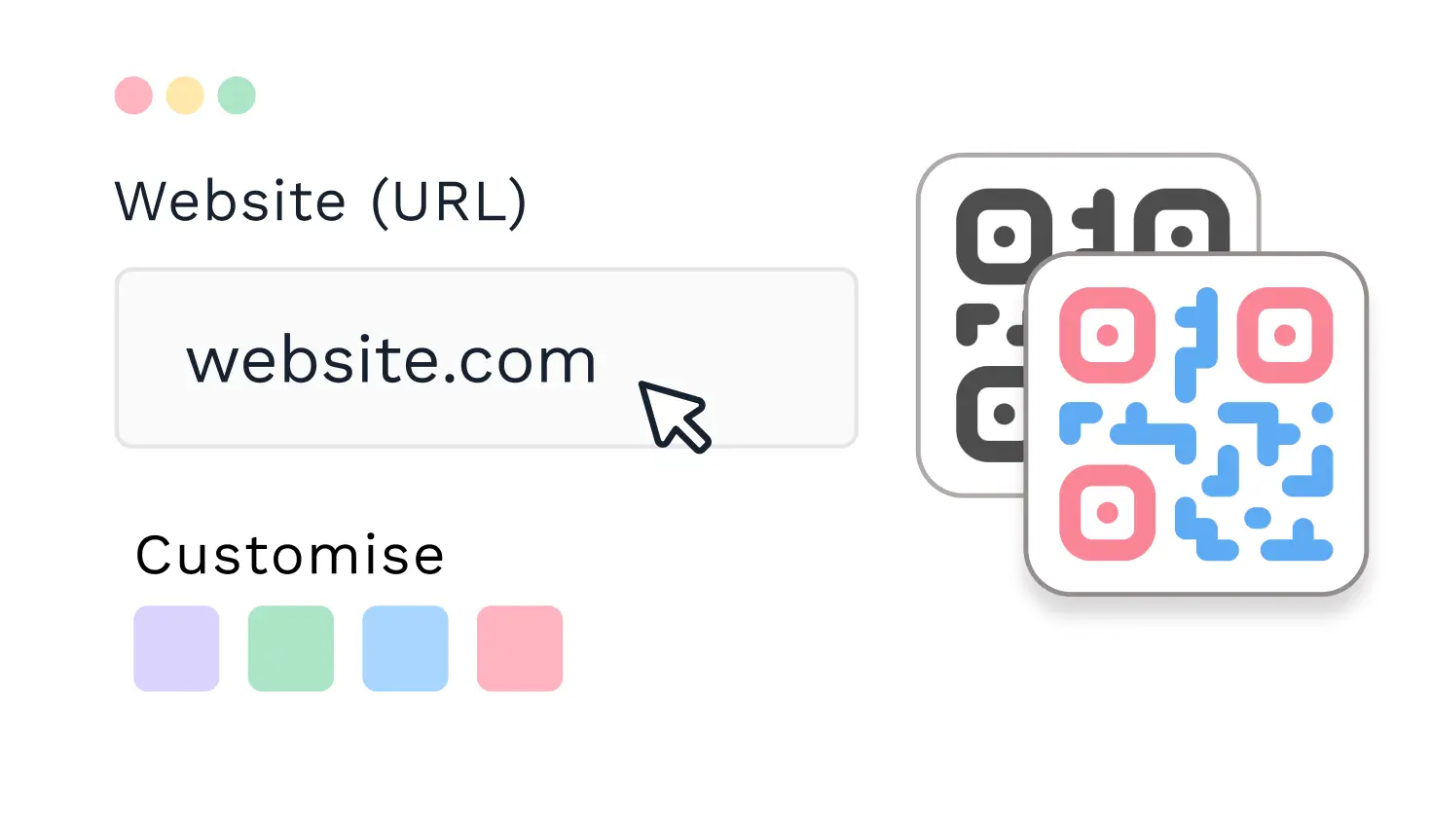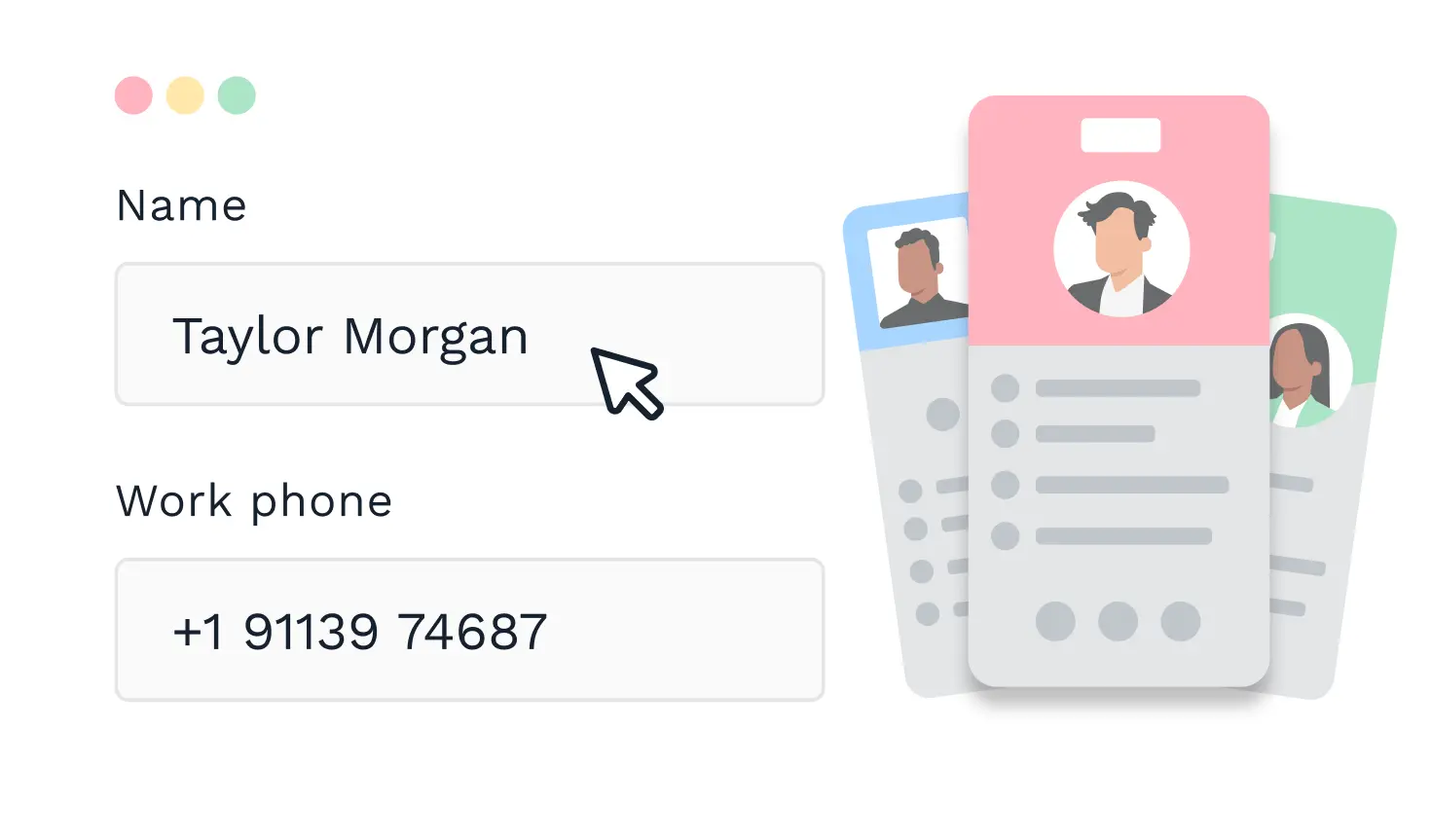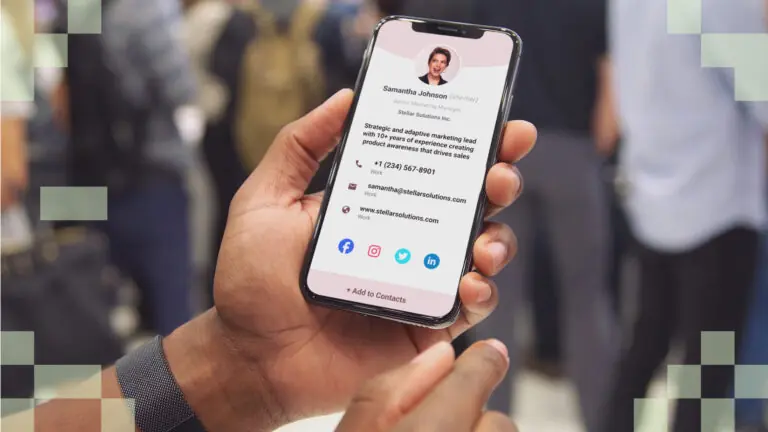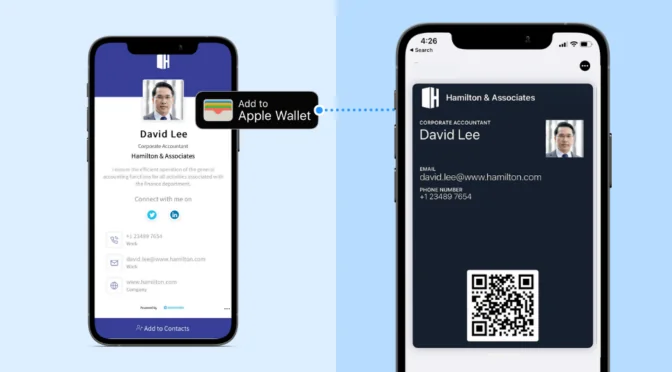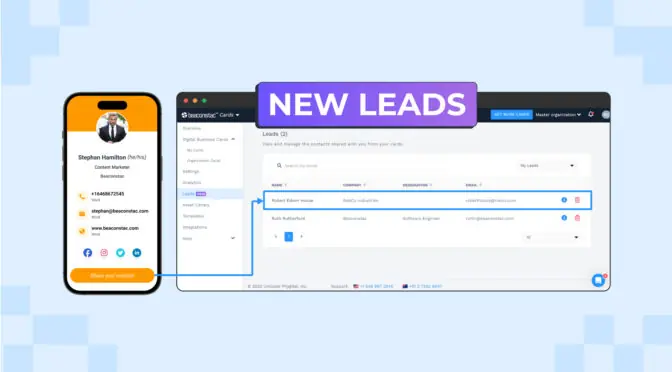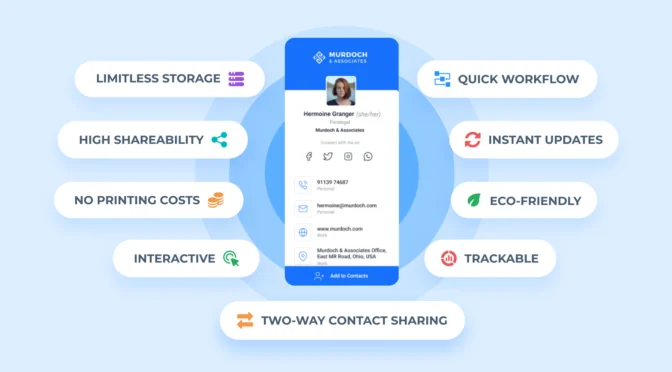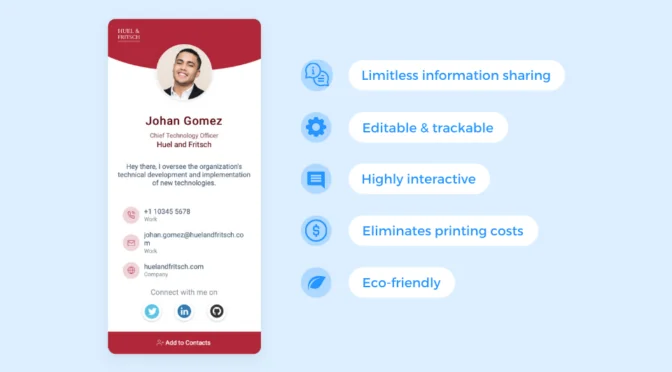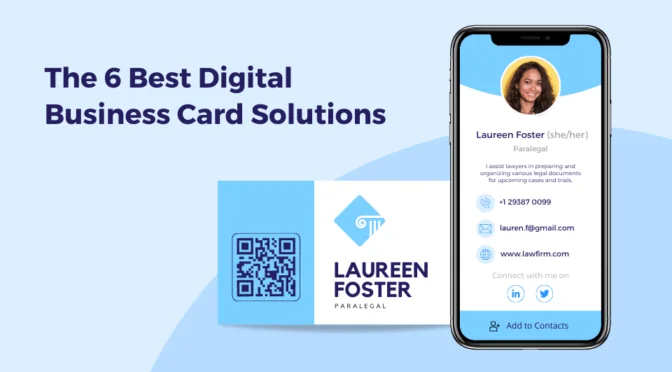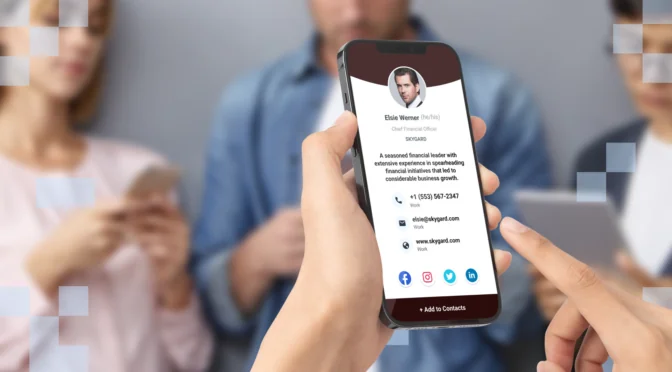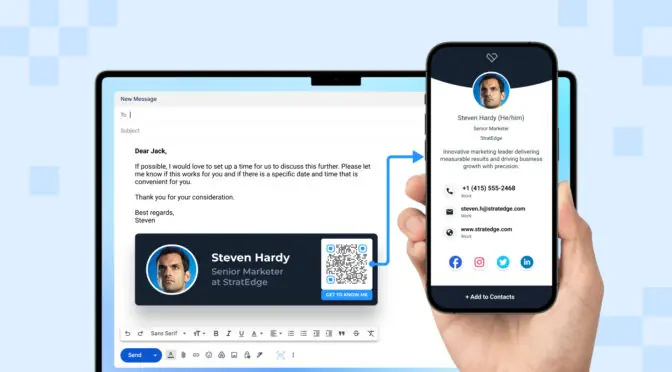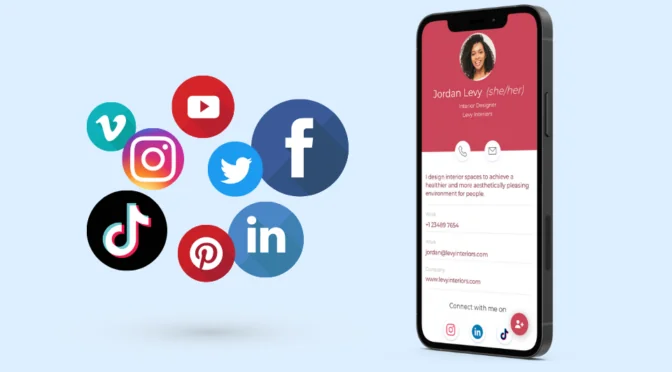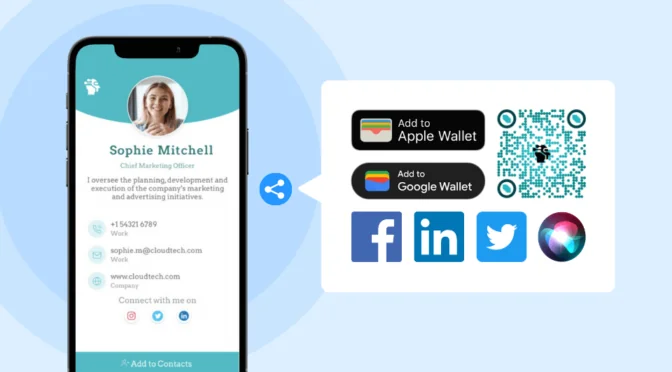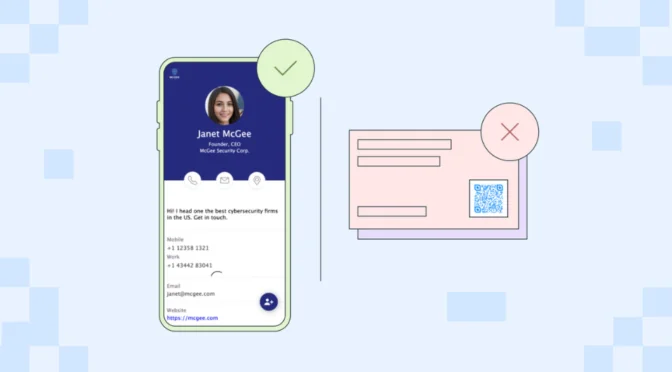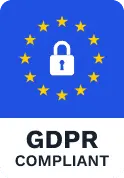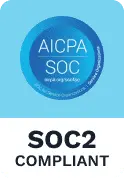Physical events have made a strong comeback after a two-year hiatus.
About 98% of event organizers plan to host at least one in-person event in 2023. The same source suggests 95% of marketers agree that events help achieve their business goals.
While events can definitely allow your brand to build genuine connections, your choice of networking tools can impact your success at these events.
For example, when you distribute your contact information via a paper business card, it gets buried under hundreds of other cards exchanged amongst attendees at the event.
There is also no way you can track the engagement with your paper cards, such as total views, unique viewers, etc. This makes it hard to ascertain potential outcomes and circle back to the people you meet.
Switching to digital business cards (or virtual business cards) is a more efficient way to make the most out of your event networking.
Continue reading for a complete guide on using digital business cards at events.
Table of contents
- 7 Ways digital business cards boost event networking ROI
- Top 3 tips when using digital business cards at events
- Who should have digital business cards at events?
- What should you include in a digital business card for events?
- Boost your event networking ROI with Uniqode
- Frequently asked questions about digital business cards at events
7 Ways digital business cards boost your event networking initiatives
- Interactively convey your full identity and expertise
- Contactlessly distribute your digital business card
- Digital business cards are convenient to carry
- Significantly cut down on card printing expenses
- Measure your card’s engagement performance
- Enable real-time, two-way contact sharing
- Network in a sustainable and eco-friendly manner
1. Interactively convey your professional identity and expertise

Digital business cards help convey your expertise and identity interactively and thoughtfully. You no longer have to cram all your professional information in a paper business card’s compact space.
With digital business cards, you can:
- Display all your relevant social handles. For instance, you can add your YouTube channel to a digital business card
- Include as many phone numbers and email addresses as you require
- Add a location your recipients can interact with via Google Maps
- Display all your relevant social media handles
Learn more about what information to include on a digital business card.
Your recipients can interact with all of these details in a click-to-access manner. For instance, a client wishing to contact you can simply click the phone number on your card. Clients who want to examine your credentials can do so with a single URL click.
Related: Interactive Digital Business Cards for Networking: Enable Real-Time Client Interactions
2. Contactlessly distribute your digital business card

As per a recent Raydiant report, nearly 60% of consumers are more likely to do business with brands that offer contactless experiences.
Unlike paper business cards that require physical contact for distribution, digital business cards offer a contactless exchange during events.
Here are some ways to contactlessly distribute your digital business card before, during, and after an event:
1. Share your digital business card as an Apple Wallet (or Google Wallet) pass.
2. Add a digital business card QR Code on your physical collaterals (e.g., event invites, exhibit posters, etc.) and digital channels (website, social media, etc.). Attendees can scan these QR Codes to instantly view your digital business card and save it on their mobile devices.
3. Share your digital business card in your email signature or via SMS or instant messaging apps through its unique URL.
3. Digital business cards are convenient to carry
When you use digital business cards, you never have to carry stacks of paper cards at every event you attend.
Once you create your digital business card, you can simply store it on your mobile device (as an Apple or Google Wallet pass or a business card QR Code). From your mobile device, you can share it as many times as required without running out of copies.
In addition, since you are sharing your card directly via your mobile device, it becomes impossible for you to misplace or forget to carry it to the event.
4. Significantly cut down on card printing expenses
Procuring paper business cards can be expensive ($194 per employee in the US, per year on average).
If you attend multiple events and hand your cards to thousands of attendees yearly, this estimated cost can soar significantly higher.
Furthermore, if your contact details change, the paper business cards you bulk-print immediately become outdated. You must now spend on reprinting your entire batch to ensure your card information stays up-to-date.
Dealing with high overhead costs is not the case with digital business cards. Depending on your chosen digital business card pricing plan, you can spend as low as $48 per team member per year, saving you as much as 75% on your business card expenses.
Moreover, you can update the details of your digital business card at the back end (even during the event). As a result, you further reduce your business card expenses by eliminating unnecessary reprinting costs.

5. Measure your digital business card’s engagement performance

Physical business cards provide no way to track engagement metrics once you’ve distributed them. The only way to capture card-scan data and monitor the performance of your event networking is by using digital business cards.
Digital business cards let you track these valuable engagement metrics:
- The total number of views your card has received
- The total number of times someone saved your contact information
- The total number of unique recipients your cards reached
- Details about the devices used to view your cards
- The exact hours of the day users are viewing your cards
- The specific locations where recipients view your cards
Tracking and measuring these digital business card engagement metrics give you precise insights into the ROI of your event networking.
6. Enable real-time, two-way contact sharing

Acquiring a prospect’s contact information during an event can be tedious.
Remember, not every prospect has a business card to hand out to you in return. And even if they have, you must manually save the card’s details in your phone book and your organization’s lead management software.
To eliminate these manual processes, you must switch to digital business cards—the only paper business card alternative capable of two-way contact sharing.
With two-way contact sharing, your prospects can submit their contact information via a form on the digital business card you share.
Once your prospect submits their contact information, it is automatically recorded as a lead entry in your digital address book (on your digital business card provider’s dashboard).
You can view and manage all the leads you gather in this address book.
You can also export these leads directly into Salesforce or 700+ other CRM platforms via Zapier. Therefore, you do not have to manually record them in your lead management software.

7. Network in a sustainable and eco-friendly manner
Most physical business cards are majorly sourced from trees or plastic. So the more cards you print, the more you engage in unsustainable networking practices.
Digital business cards help you reduce your contribution to deforestation and plastic waste arising from the use of paper or plastic cards. Because these cards are paperless, they let you network more sustainably.
Moreover, using digital business cards at an event exudes eco-friendliness, a big plus for attracting like-minded clients.
Learn more: Network Sustainably With Eco-Friendly Business Cards
Top 3 tips when using digital business cards during events
1. Make your digital business cards instantly accessible in your presentations
If you’re presenting at an event, you can add your digital business card QR Code to your slide deck. This way, even if you cannot interact with everyone, you can provide instant access to your card to anyone watching your presentation.
2. Leverage your physical collaterals
You can also attach your business card QR Code to physical collateral, such as booth posters and signage. Since you have already positioned these collaterals in high-traffic areas, your business card QR Codes are more likely to be scanned.
3. Take time to update your digital business cards to suit your audience
During the event, some details on your digital business card may need tweaking to suit a particular audience. You can update your digital business card at any time. Your updates will immediately reflect on your live card.
You can even create multiple distinct business cards for one individual, each with unique aesthetics and details based on its intended audience.
Who should have digital business cards at events?

Let us look at some examples of professionals that can benefit from digital business cards during events:
1. Sales representatives
Events are great places for sales professionals to generate high-quality leads and customers. Digital business cards can help you make the most of your networking initiatives at events.
Unlike paper business cards, digital business cards are interactive. Each piece of information you display on your card is accessible in real-time. According to Demand Metric, highly interactive content can increase your overall conversion rate during an event by as much as 2X.
Moreover, digital business cards provide two-way contact sharing. With this capability, you can instantly capture your client’s contact details directly from the card you share.
Further reading: A Guide to Using Digital Business Cards for Field Sales
2. Booth representatives
Since multiple potential clients can visit your company’s booth at an event, you need to make it easy for them to contact you in the future.
Instead of issuing paper business cards, brochures, or any physical collateral, simply share a virtual business card.
Once visitors access the card, they can immediately save your contact information in their phone book. Getting in touch with you now becomes a matter of tapping a few buttons.
You may also set up printed promotions at your booth with your business card QR Code attached. This way, interested prospects can scan it and instantly save your contact information on their mobile devices.
3. Marketing managers
As a marketing manager, one of your goals at an event could be to build meaningful connections with your company’s target audience. And a digital business card can help you make a great first impression.
These cards provide a contactless, convenient, and eco-friendly way to exchange contact details with your target audience.
Moreover, they can capture engagement metrics such as total views, unique viewers, and the number of times your contact details were saved.
Since numbers are your best bet as a marketing lead, you will find these engagement metrics useful when measuring your networking ROI.

4. Realtors
Real estate is an industry where physical business cards and brochures are widely used. But as property prices constantly change, realtors are forced to discard their old materials and reprint them regularly.
As a realtor, you can add links to digital versions of your collaterals in your digital business card. These links can include your online property listing, client reviews, and virtual property tours.
This digital content may be dynamic and often change. Even if you change the URL (e.g., your website domain), you can copy the new one to your digital business card at the back end.
You do not need to print massive amounts of paper collateral and reprint them to update details.
What should you include in a digital business card for events?
1. Professional headshot. Include a professional headshot to build credibility. Ensure it is clear and of high quality.
2. Name. Add your full name, prefix, suffix, and preferred pronouns.
3. Company name and Logo. Add your company’s name and logo for easy brand recognition.
4. Company designation. Include your role within your company to showcase your experience and expertise.
5. Professional summary. Ensure to highlight your skills and achievements.
6. Contact details. Add all your phone numbers and email addresses. Assign them under categories like personal, work, home, etc.
7. Business location. Add your Google Maps location to your card so clients can easily find you.
8. External URLs. Add all your relevant URLs, such as your website and landing pages. Choose a descriptive label for each IRL you add.
9. Social links. A digital business card with social media icons strengthens your credibility and allows your audience to learn more about you even long after the event.
10. Company branding. Add your company’s defining colors, fonts, and themes to stand out.
11. Contact form. A form where recipients can conveniently submit their contact details so you can build a list of warm leads in your virtual address book.
Boost your event networking ROI with Uniqode’s digital business cards
Post-pandemic, companies and professionals across industries are opting for in-person events to make way for new business opportunities.
Choosing a specialized digital business card solution can help you make every interaction with your card worthwhile.
With Uniqode’s digital business card solution, you can create and manage digital business cards at scale. Customize them per your branding and instantly share them through contactless channels such as Apple or Google Wallet, social media, and email signatures.
All cards created via Uniqode offer a secure two-way contact sharing feature that lets your recipients share their contact information—directly through the card you share with them.
Once shared, the contact details are recorded in your digital address book, where you can manage your leads list and export it to your company’s CRM software.
All of these functionalities are safeguarded by robust enterprise-grade security measures and do not require an additional app.
Further reading: The 6 Best Digital Business Card Solutions Available Today

Frequently asked questions about digital business cards at events
What are the advantages of digital business cards at events?
Digital business cards make way for convenient and efficient networking at events. You no longer have to carry physical cards and can instead share your details with interested prospects or agents in a 100% contactless and paperless manner.
Moreover, virtual business cards cut printing costs and allow quick and real-time editing. You can also track engagement metrics to optimize your future event networking efforts.
Learn more: The Top 9 Digital Business Card Benefits
How much do digital business cards for events cost?
Digital business cards can cost as low as $48 per team member per year (depending on your chosen digital business card pricing plan). They are significantly more cost-effective than paper business cards, which have an average annual cost of $194 per employee in the US.


